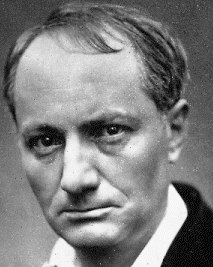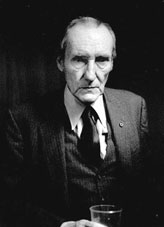Charles Baudelaire

Baudelaire was born in Paris. His father, a senior civil servant and an amateur artist, died in 1837, and in the following year his mother married a lieutenant colonel named Aupick, who later became a French ambassador to various courts.
Baudelaire received his inheritance in April 1842 and rapidly proceeded to dissipate it on the lifestyle of a dandified man of letters, spending freely on clothes, books, paintings, expensive food and wines, and, not least, hashish and opium , which he first experimented with in his Paris apartment at the Hôtel Pimodan (now the Hôtel Lauzun) on the Île Saint-Louis between 1843 and 1845. It was shortly after returning from the South Seas that Baudelaire met the mulatto woman known as Jeanne Duval, who, first as his mistress and then, after the mid-1850s, as his financial charge, was to dominate his life for the next 20 years. Jeanne would inspire Baudelaire's most anguished and sensual love poetry, her perfume and, above all, her magnificent flowing black hair provoking such masterpieces of the exotic-erotic imagination as "La Chevelure" ("The Head of Hair").
Baudelaire's continuing extravagance exhausted half his fortune in two years , and he also fell prey to cheats and moneylenders, thus laying the foundation for an accumulation of debt that would cripple him for the rest of his life. In September 1844 his family imposed on him a legal arrangement that restricted his access to his inheritance and effectively made of him a legal minor. The modest annual allowance henceforth granted him was insufficient to clear his debts, and the resulting state of permanently straitened finances led him to still greater emotional and financial dependence on his mother and also exacerbated his growing detestation of his stepfather. The agonizing moods of isolation and despair that Baudelaire had known in adolescence, and which he called his moods of "spleen," returned and became more frequent.
Wikipedia can give you the rest of his biography. More detailed info here
